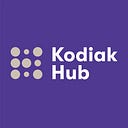7 things you may not know about Conflict Minerals.
Know what you’re buying; know where you’re buying it from.
By Sam Jenks
We often say things without knowing what it means or the true weight and implications it holds for people, or the world around us.
Conflict Minerals.
What do we really know about conflict minerals?
Most individuals in the world know what a conflict mineral is, by definition.
Minerals, so sought after, so precious and valuable for commercial and industrial gain that people fight, and die digging for them. I doubt you knew that those deaths tallied to 5.4 million people between 1998–2007, in Africa alone (Enough Project).
Don’t worry; I had no knowledge of those statistics either. But it makes me revisit the question, what do you really know about conflict minerals?
What are the minerals?
Conflict minerals encompass various different mineral groupings. Any mineral, which is rare enough to warrant possible exploitation by armed forces for illegal trade, is considered a mineral of conflict.
However, when most individuals discuss conflict minerals, they are speaking of the 3T’s (tin, tantalum and tungsten) along with gold.
What is the conflict?
It’s impossible to reduce such an immensely complicated situation to a few words, but conflict has arisen because of external entities siphoning the hard work of millions to make millions of dollars immorally, illogically and illegally.
The Democratic Republic of Congo and a few neighboring countries have faced large majorities of mineral based conflict from armed rebels within their country profiting from exploitation. On the other side of the corruption are the buyers. Armed rebel forces profited an estimated 185 million US dollars as a result of conflict mineral sales (Enough Project).
How can you assure that your business steers clear of using wrongly acquired conflict minerals?
We must understand transparency.
Transparency is obtained by allowing customer and stakeholders access to any information regarding the businesses’ sourcing, purchasing and trade agreements, strategies and/or records. Building a foundation for transparency in your business and supply chain can better strengthen brand value, and customer trust.
It is the job of us, as consumers and businesses, to have an opinion, and demand transparency from those whom we purchase goods and services from.
A study done by Audrey Mclain from University of Arkansas, regarding the knowledge of brand transparency efforts, compiled evidence suggesting that no matter how much we, as consumers, care about transparency in the goods we purchase, we’re relatively clueless when it comes to companies’ transparency initiatives (Mclain 2016). To that I would reply; we must strive to become informed.
What is Dodd-Frank?
The Dodd-Frank Wall Street Reform and Consumer Protection Act is a piece of legislation built to promote transparency and governance in the trade of natural resources with buyers inside the United States and suppliers all over the world.
Section 1502 of the Dodd-Frank Act requires that companies that use any minerals from the Congo, and surrounding countries, disclose the areas those minerals were sourced and purchased to determine if the minerals are from areas of conflict. This eliminates (or aims to eliminate) illegal trading and funding of armed groups in those areas (Brookings).
What about the EU?
Just last month on November 22nd 2016, the EU parliament came to an agreement for a new text regarding conflict minerals regulation.
The regulations will have very similar implications and guidelines for companies in the EU, sourcing from the Democratic Republic of Congo and adjoining countries, as Dodd-Frank did for the US. “European Union smelters and refiners and direct importers of conflict minerals will be required to conduct due diligence if they are sourcing from a non-exhaustive list of conflict-affected and high-risk areas” (Altschuller 2016) This legislation will promote supply chain compliance, governance and transparency in the hopes to create a new standard for ethical business practices.
The regulation will go into effect January 1, 2021.
Has regulation created change?
Yes and no.
Much progress has been made to eradicate armed forces from the equation, regarding the trade of conflict minerals. It was found through survey, by year 2014, 70% of the conflict mineral mines were no longer controlled by armed force in the eastern provinces of Congo (International Peace Survey Information Services). The number of smelters in the area has, too, reduced. Conclusively, malpractice and violence caused from conflict minerals has seen a dip after the Dodd-Frank Act was put into place.
On the contrary, there are still companies who have failed to comply, or continue to source and purchase from suppliers driven by the underbelly of armed forces groups. Which brings us back to the other horn of the bull, the buyers of conflict minerals.
Amnesty International and Global Witness Report
In 2015, Amnesty International and Global Witness published a report containing the compliance levels of filed conflict minerals reports, to the US Securities and Exchange Commissions (SEC), in 2014, from 100 different US companies. 79% of the companies and corporations in that sample group failed to comply with the minimum disclosure requirements expected after the implementation of conflict mineral legislation. That means 79 out of 100 companies weren’t compliant with SEC guidelines. The list of companies that failed to meet the requirements is astonishing. They’re big companies, big names, and boy o’ boy do they make some big profit.
As and author, I retain my own opinions about the manufacturing, trade and morality of conflict mineral production and sale. I’m not here to damage the image of companies or hold any high on a pedestal, on the contrary. I am also fully aware of the necessity for conflict minerals presence in many consumer goods.
With that being said, we as consumers and businesses must make it a point to rise above traditional consumerism, demand and exhibit transparency, and gather information so we make informed purchases, not impulsive ones.
Until next week.
